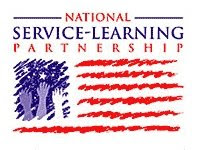Congratulations to those students, the staff and administration, highlighted in the Newsweek May 8th issue, “What Makes a High School Great.”
It is no easy task to be a nationally recognized high performing school. I was thrilled to find the first sub-heading was titled Creating Good Citizens, though it didn’t erase my disgust and outrage stemmed from reading Time Magazine’s “Drop Out Nation”. More than 500,000 students will drop out this year alone.
When you read the article, ask yourself: Will I get caught up reading the scores and wanting to know what school made the list? Shouldn't we focus on the the How,and not the Who.
http://www.msnbc.msn.com/id/12532668/site/newsweek/
http://www.time.com/time/archive/preview/0,10987,1181646,00.html
Do we risk becoming complacent as we read about great schools? We know they are the minority. In many unfortunate ways the majority of schools are failing. American youths are suffering from a lack of funding, poorly trained teachers, an inadequate number of teachers and diminishing access to curriculum that encompasses subject-matter beyond basic math and reading. It is our responsibility to give the same or similar opportunities to every student that these students featured in Newsweek are receiving.
When will policy makers, school administrators start looking for the positive deviances among these schools and start offering positive reform strategies?
Apparently reform initiatives including Gates, New School Ventures and the Carnie Corporation of New York are thinking beyond the test scores and asking: “… are we really preparing kids for citizenship?"
There are three main questions that echo in my mind:
1) Do we not owe it to ourselves to highlight positive deviances and try to replicate them?
2) Where is the support for those schools that have not been funded by a reform initiative?
3) What can the parents do whose students’ schools have not benefited from a multi million dollar reform investment?
The Civic Mission of School addresses this issue. With researched based data, they have mounted a campaign to educate policy makers, teachers and administrators about the 6 promising practices approaches to civic learning:
*Instruction in history, law, and government
*Guided discussion of civic and social issues
*Active learning experience such service-learning
*Civic related extracurricular activities
*Simulations of democratic practices and procedures
*Participation in school governance
There is a data bank that teachers can post their lessons and share best practices. Please teachers, get the word out! Share what works, what motivates and engages and inspires your students: http://www.civicmissionofschools.org/
How can parents get more involved? A Gates funded grassroots coalition called Stand Up is advocating parents, teachers, community members stand up and demand people recognize the crisis in education. http://www.standup.org/
Stand Up's mission is to:
*Give parents the tools they need to get their kids the education they deserve.
*Mobilize all Americans to engage in the solution and demand policies that help all students succeed.
*Ensure students receive the support they need to graduate from high school ready for college, work, and citizenship
The Newsweek article is a great example of what good the mass media can do to help highlight positive examples. In order to build on this momentum it is important for us to continue to push education as a primary issue for our local, state and federal policy maker.
We cannot just ask them hard questions. We need to offer positive alternatives and creative answers that address the crisis we have in our education system in America.

- Heather Margolis, National Service-Learning Partnership




No comments:
Post a Comment